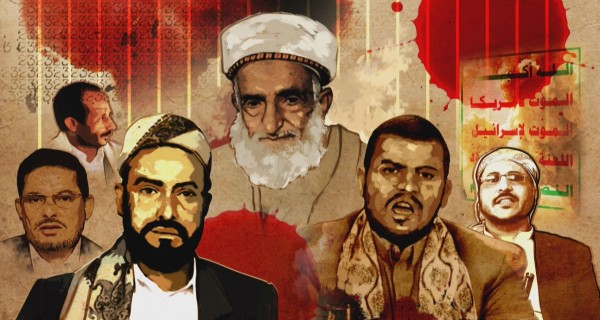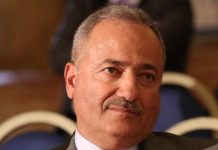Yemen: A war with political purpose
Saturday, 28 March 2015
Abdulrahman al-Rashed/Al Arabiya
The size of regional and foreign concern over the war in Yemen has exceeded expectations. Concerned governments and international institutions have frankly expressed their views on the events. Most of them have voiced their understanding of the importance of protecting the Yemeni regime which was subjected to a destructive process that would have inevitably engaged Yemen in a long-term and dangerous civil war, much like what is happening in Syria and Libya.
There was a lot of patience during past negotiations and while concessions were made to both those who oppose and reject the regime, it was all for the sake of achieving reconciliation. However when those who oppose the regime resorted to weapons, seized the capital and a number of governorates, and tried to murder President Abdrabbo Mansour Hadi, after subjecting him to house arrest at his presidential palace and detaining high-ranking government officials, the only option left was foreign military intervention. After all, the Yemeni government is a legitimate government with no military power to protect it as it confronts a gang that has bluntly expressed violent intents.
This is what pushed most regional governments and superpowers to support the military move in Yemen. Attacks were only launched after meeting all required conditions and legal justifications. They were also only launched after the establishment of a coalition which expresses the concerned countries’ stance as well as the inclusion of regional institutions, such as the Arab League and the Organization of Islamic Cooperation. Also, the operation had attained the support of the U.S. and Britain, while the United Nations had recognized Hadi’s legitimacy and the legal right to call for intervention after the rebels chased him to the temporary capital of Aden, threatening to kill him. Thus, most countries frankly supported the military campaign, Decisive Storm.
Some, such as Iran and Hezbollah, opposed the attack. This was expected considering their ties to the Houthis from the very beginning. However, generally speaking, this military campaign is one of the few politically, diplomatically and legally organized campaigns ever, and this is what led the states that had doubts at the beginning of the campaign to declare their support the next day.
The military campaign’s true political role
Although the fighter jets shelled posts which had been previously singled out and targeted rebels’ stations and forces, the political solution, as formulated by the U.N. representative, was not ruled out. The main aim is not to get rid of the Houthis or other opposition forces as this is impossible and it’s not even the goal. The aim is to protect the Yemeni state, its regime, institutions and figures and to protect the people and country from the chaos of fighting and civil war.
The main aim is not to get rid of the Houthis or other opposition forces as this is impossible and it’s not even the goal
Abdulrahman al-Rashed
The military campaign has a political role as well. It is to push all parties towards a solution under the U.N. umbrella and according to what U.N. Security Council members have agreed on. Armed rebels must realize that the transitional Yemeni government, that does not harness significant military power, is in fact legitimate and that there is a large military force which is willing to protect it if needed. The second chapter after the military campaign is political and it’s about the return of all parties to negotiating and searching for a political solution which does not exclude anyone.
Yemen was and still is a matter of concern for the United Nations. U.N. Special Envoy to Yemen Jamal Benomar, who’s been working non-stop since the beginning of the revolution in 2011, has been regularly submitting his reports to his overseers. He had supervised the reconciliatory solution by assigning the transitional government and an interim president to hold elections for Yemenis to choose whomever they want to lead them.
Isolated president Ali Abdullah Saleh and Houthi rebels decided to challenge the reconciliatory plan and resorted to force in order to sabotage the political process and seize power. They deployed their armed members in several cities and governorates in order to subjugate the Yemeni people by force. Those who understand the Yemeni case can understand and support the efforts of the U.N and the needs of Saudi Arabia – the biggest country neighboring Yemen – and the rest of the GCC, who are directly affected by Yemen’s security, to militarily intervene to support legitimacy.
Those who try to make the battle look like it’s a war with no international plan and no legitimacy only care about keeping the fighting ongoing in a country which suffers from a lack of resources but has an abundance of arms and is on the verge of a civil war.
هذه حرب لها هدف سياسي
عبد الرحمن الراشد/الشرق الأوسط/28 آذار/15
جم الاهتمام الإقليمي والخارجي بالحرب في اليمن فاق التوقعات، لم تبقَ حكومة أو مؤسسة دولية معنية إلا وكان لها رأي أعلنته صراحة. ومعظمها عبرت عن تفهمها ضرورة حماية النظام اليمني الذي كان يتعرض لعملية تدمير ستدخل اليمن حتما في حرب أهلية طويلة وخطيرة كما يحدث في سوريا وليبيا.
مر وقت طويل من الصبر على المفاوضات وتقديم التنازلات للمعارضين والرافضين، من أجل المصالحة. لكن عندما لجأ المعارضون إلى استخدام السلاح، واستولوا على العاصمة، وعدد من المحافظات، وحاولوا قتل الرئيس عبد ربه منصور هادي، وقبلها قاموا بسجنه في قصر الرئاسة واعتقال كبار أعضاء حكومته، ولم يبقَ سوى الرد العسكري الخارجي عليهم. هذه حكومة شرعية من دون قوة عسكرية تحميها تواجه عصابة أعلنت صراحة عن نياتها.
هذا ما دفع معظم الحكومات الإقليمية والكبرى تأييد الخطوة العسكرية، ولم يبدأ الهجوم إلا بعد أن استوفت كل الشروط المطلوبة منها، المسوغات القانونية، وبناء تحالف يعبر عن موقف جماعي كبير للدول المعنية، وإشراك المؤسسات الإقليمية مثل الجامعة العربية ومنظمة التعاون الإسلامي، والحصول على تأييد حكومات رئيسية مثل الولايات المتحدة وبريطانيا، ولم تعترض بقية الدول الكبرى، واعتراف الأمم المتحدة بشرعية الرئيس هادي، وحقه القانوني في الدعوة للتدخل بعد أن طارده المتمردون إلى مقره في العاصمة المؤقتة عدن مهددين بقتله. أغلبية الدّول أيدت صراحة الحملة العسكرية وقدمت لها الدعم.
وهناك من عارض الهجوم مثل إيران وحزب الله، وهو أمر متوقع لصلتهما بالمتمردين منذ البداية. لكن بشكل عام هذه واحدة من الحملات العسكرية القليلة المنظمة سياسيا ودبلوماسيا وقانونيا، وهذا ما جعل معظم الدول المتشككة في البداية تعلن تأييدها في اليوم الثاني.
ورغم أن أسراب الطائرات كانت تقصف مواقع تم تحديدها بشكل مبكّر استهدفت مقرات وقوات المتمردين، فإن الحل السياسي لم يتم استبعاده، وفق ما صاغه ممثل الأمم المتحدة. الهدف الأساسي ليس التخلص من الحوثيين أو المعارضين الآخرين، لأن هذا أمر مستحيل وليس مطلوبا، بل الهدف حماية الدّولة اليمنية، نظاما ومؤسسات وشخصيات، وحماية البلد والشعب اليمني من فوضى الاقتتال والحرب الأهلية.
الحملة العسكرية لها هدف سياسي كذلك هو دفع كل الأطراف إلى حل تحت مظلة الأمم المتحدة، ووفق ما أجمع عليه كل أعضاء مجلس الأمن. على المتمردين المسلحين أن يدركوا أن الحكومة اليمنية الانتقالية التي لا تملك بذاتها قوة عسكرية كبيرة، تملك ختم الشرعية، وهناك قوة عسكرية أكبر ستحميها إن لزم الأمر. الفصل الثاني سياسي، يلي الحملة العسكرية، بعودة كل الأطراف إلى طاولة التفاوض، والبحث عن حل سياسي لا يستبعد أحدًا.
واليمن كان، ولا يزال، محل عناية مجلس الأمن، وممثل الأمم المتحدّة جمال بنعمر الذي يعمل بلا توقف منذ بداية الثورة، في عام 2011، وإلى اليوم، وهو يقدم تقاريره إلى رؤسائه بشكل منتظم، وهو الذي أشرف على الحل التصالحي بتكليف حكومة مؤقتة ورئيس انتقالي ثم إجراء انتخابات يختار فيها اليمنيون من يشاءون لقيادتهم.
الرئيس المعزول علي عبد الله صالح والمتمردون الحوثيون وحدهم قرروا تحدي المشروع التصالحي، واستخدموا القوة لتخريب العملية السياسية، والاستيلاء على الحكم، ونشروا قواتهم للقتال في المدن والمحافظات الأخرى لإخضاعها بالقوة. من يفهم القصة اليمنية يستطيع أن يتفهم ويدعم الجهد الأممي ويتفهم ضرورات السعودية، الجارة الكبرى، ومعها بقيّة دول مجلس التعاون الخليجي المعنيّة مباشرة بأمن اليمن، للتدخل عسكريا لدعم الشرعية.
الذين يحاولون تصوير المعركة على أنها حرب بلا مشروع دولي ولا شرعية، يهمهم فقط إبقاء الاقتتال في بلد يعاني من نقص الموارد وكثافة في السلاح، وعلى حافة حرب أهلية.






















